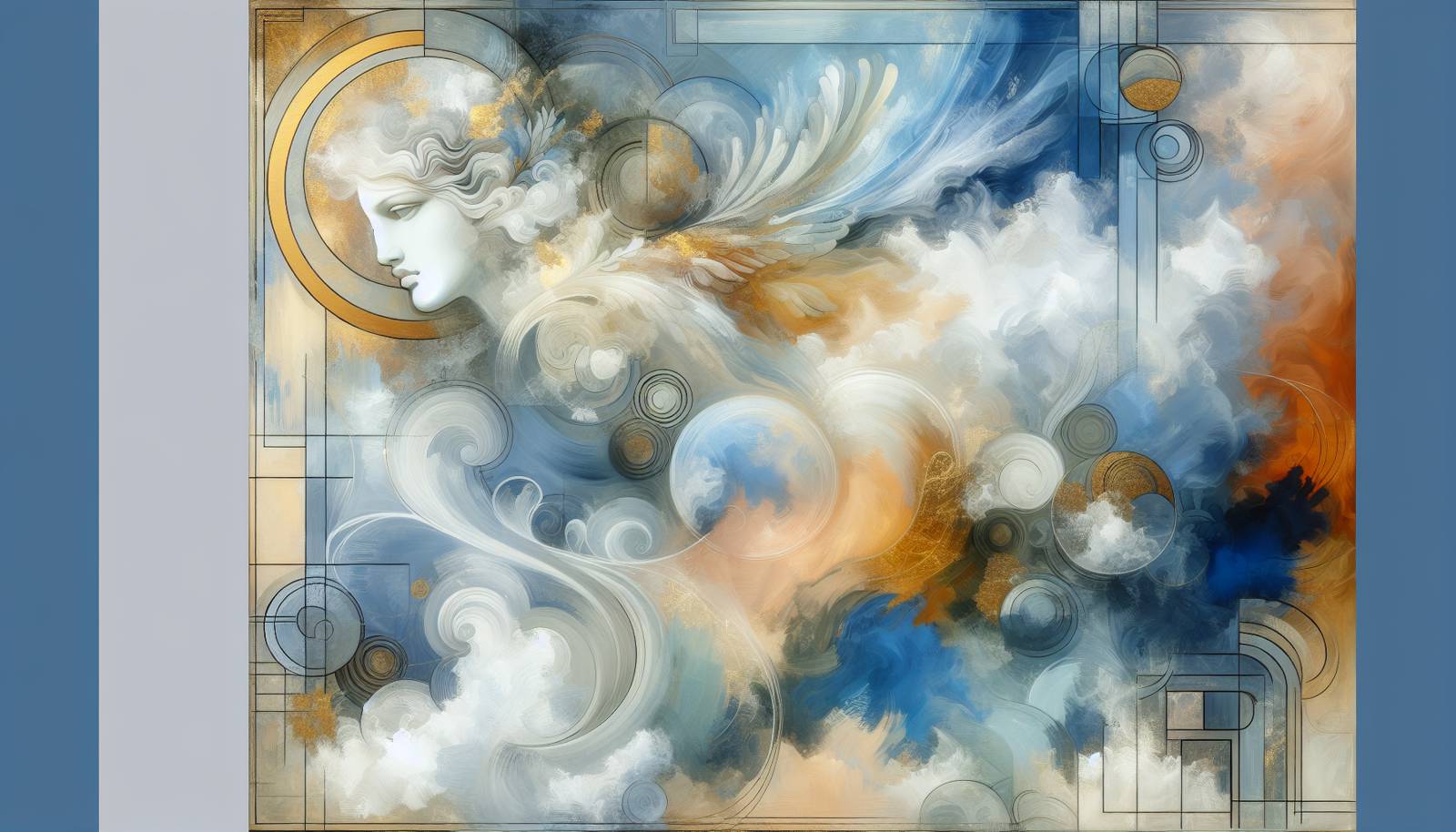
FAQ About Role of Shakespearean Themes in Contemporary Films

What are some common Shakespearean themes found in contemporary films?
Common Shakespearean themes that frequently appear in contemporary films include love and romance, power and ambition, betrayal and deception, revenge, fate and destiny, madness, and the struggle between good and evil. These themes are universal and timeless, allowing filmmakers to adapt them into modern contexts with relatable characters and plots.

How do filmmakers incorporate Shakespearean themes into modern settings?
Filmmakers often incorporate Shakespearean themes into modern settings by recontextualizing the characters and situations to fit contemporary society. For example, the theme of ambition in Shakespeare's "Macbeth" has been adapted in films focused on contemporary corporate settings, politics, or sports narratives. The universality of motives and emotions in Shakespeare's work allows filmmakers to tell these stories in settings and cultures that resonate with today's audiences.

Can you give examples of films influenced by Shakespeare's plays?
Numerous films have been influenced by Shakespeare's plays. For instance, "The Lion King" draws inspiration from "Hamlet," "10 Things I Hate About You" adapts "The Taming of the Shrew," and "West Side Story" is a modern retelling of "Romeo and Juliet." Additionally, "Ran" by Akira Kurosawa reimagines "King Lear" in a Japanese context, showcasing how themes from Shakespeare's work transcend cultural boundaries.

What is the significance of adapting Shakespearean themes in contemporary films?
Adapting Shakespearean themes in contemporary films is significant because it bridges the gap between classic literature and modern storytelling. By reinterpreting these timeless stories, filmmakers can address current societal issues, explore human psychology, and present moral dilemmas in a way that is accessible to modern audiences. This approach helps keep the essence of Shakespeare's work relevant across generations.

How does the theme of love in Shakespeare's plays manifest in modern films?
In modern films, the Shakespearean theme of love often manifests through complex romantic relationships, love triangles, or the challenges faced by lovers due to societal pressures, similar to "Romeo and Juliet." Contemporary movies might explore these dynamics in settings such as high schools, urban environments, or different cultural contexts, while maintaining the essence of passion, conflict, and reconciliation found in Shakespeare's works.

Are there specific genres of films that frequently use Shakespearean themes?
Shakespearean themes are versatile and appear across various film genres, including drama, romance, comedy, and even sci-fi or fantasy. Dramas and romances naturally draw from Shakespeare's exploration of human emotions and relationships, while comedies often incorporate elements of mistaken identity and wit akin to his comedic plays. Sci-fi and fantasy genres sometimes use Shakespearean themes to explore ethical and philosophical questions.

What role does the theme of power play in contemporary adaptations of Shakespeare's works?
The theme of power in Shakespeare's works often explores the complexities of leadership, corruption, and ambition. Contemporary adaptations inject these ideas into modern settings such as political thrillers or corporate dramas, where characters engage in power struggles, ethical dilemmas, and betrayals. By highlighting the timelessness of power dynamics, such adaptations comment on modern societal issues and human nature.

Do contemporary filmmakers alter Shakespearean themes to fit modern narratives?
Yes, contemporary filmmakers often alter Shakespearean themes slightly to fit modern narratives better. This might involve changing the setting, character dynamics, or moral outcomes to better reflect current societal values and audience expectations. While the core theme remains unchanged, these alterations render the narrative more relatable and engaging for modern viewers.

How do films address the theme of revenge found in Shakespeare's plays?
Films addressing the theme of revenge, prominent in plays like "Hamlet" or "Titus Andronicus," often depict characters on a quest for justice or vengeance. This theme translates to modern contexts through storylines involving family honor, crime and justice, or personal vendettas. Filmmakers explore the psychological and ethical implications of revenge, emphasizing its destructive potential and questioning the morality of retribution.

In what ways do Shakespearean comedies influence modern romantic comedies?
Shakespearean comedies influence modern romantic comedies through their use of misunderstandings, witty dialogues, and happy resolutions. Films in this genre often feature comedic errors, love-induced confusion, and ultimately joyful endings, reflecting patterns seen in plays like "Much Ado About Nothing" or "A Midsummer Night's Dream." These elements provide humor and light-heartedness, making them popular in contemporary storytelling.

How is the theme of madness in Shakespeare's works represented in contemporary films?
The theme of madness, evident in plays like "King Lear" or "Macbeth," is often portrayed in contemporary films through characters' psychological battles or mental health issues. Filmmakers explore these themes to discuss the human psyche, societal pressures, or the consequences of unchecked ambition and guilt. Such portrayals open discussions on mental health, making the theme relevant and impactful for modern audiences.

Why do filmmakers continue to draw inspiration from Shakespeare's themes?
Filmmakers continue to draw inspiration from Shakespeare's themes due to their timeless nature and universal appeal. Shakespeare's exploration of human emotions, ethical dilemmas, and complex relationships transcends cultural and temporal boundaries. These themes resonate with audiences by shedding light on fundamental human experiences, making them an enduring source of material for storytelling in any era.

How do Shakespearean tragedies influence modern dramatic films?
Shakespearean tragedies influence modern dramatic films through their exploration of intense human emotions, moral quandaries, and tragic flaws. Character-driven plots seen in plays like "Hamlet" or "Othello" are mirrored in films focusing on personal downfall or the consequences of fatal decisions. These adaptations highlight human fragility and evoke empathy, similar to their Shakespearean counterparts.

Can Shakespearean themes be found in animated films?
Yes, Shakespearean themes can be found in animated films. Animated movies often adapt these themes to explore complex emotional narratives and character development in ways accessible to all ages. For example, Disney's "The Lion King" introduces elements of betrayal and redemption from "Hamlet," while sometimes using humor and music to make the themes approachable for a younger audience.

What impact does Shakespeare's exploration of fate and destiny have on sci-fi films?
Shakespeare's exploration of fate and destiny profoundly impacts sci-fi films, where these themes often convert into plotlines about time travel, prophecy, and alternate realities. Filmmakers use these concepts to discuss determinism, free will, and the potential for change in human destiny. Such stories reflect the philosophical questions posed in plays like "Macbeth" or "Julius Caesar," providing a speculative science context.

Are there any contemporary films that directly adapt Shakespeare's plays?
Yes, several contemporary films directly adapt Shakespeare's plays, maintaining the original language and plot while placing them in modern contexts. Films like "Romeo + Juliet" (1996) starring Leonardo DiCaprio and Claire Danes, and "Hamlet" (2000) directed by Michael Almereyda, present classic stories using modern settings and aesthetics while preserving Shakespeare's original dialogue and themes.

How do contemporary films handle the theme of betrayal seen in Shakespeare's works?
Contemporary films handle the theme of betrayal by delving into character dynamics, trust issues, and the aftermath of deceit. This theme often manifests in political thrillers, espionage dramas, or personal relationships, echoing the treacheries seen in plays like "Julius Caesar" or "Othello." These modern narratives explore the motivations behind betrayal and its impact on individuals and society at large.

Do Shakespearean themes in films contribute to their academic study?
Shakespearean themes in films significantly contribute to their academic study by serving as modern examples of classical literature's influence. By analyzing these films, scholars can explore how filmmakers interpret and transform classical themes, assess their relevance to contemporary society, and critique the cultural, historical, and psychological implications present in both the original texts and their adaptations.

How do filmmakers balance staying true to Shakespearean themes with new storytelling techniques?
Filmmakers balance staying true to Shakespearean themes with new storytelling techniques by marrying the core messages of the original plays with innovative cinematic approaches. They might use modern dialogue, varied settings, diverse casting, or unique narrative structures while preserving the emotional depth and moral questions central to Shakespeare's work. This blend respects the traditional themes while appealing to today's audiences.

What challenges do filmmakers face when using Shakespearean themes in films?
One of the primary challenges filmmakers face when using Shakespearean themes in films is making these centuries-old themes resonate with contemporary audiences without losing their essence. Creators must navigate updating settings or dialogues and addressing cultural or societal changes while ensuring that the universal human emotions and dilemmas that make Shakespeare's work timeless remain intact.
